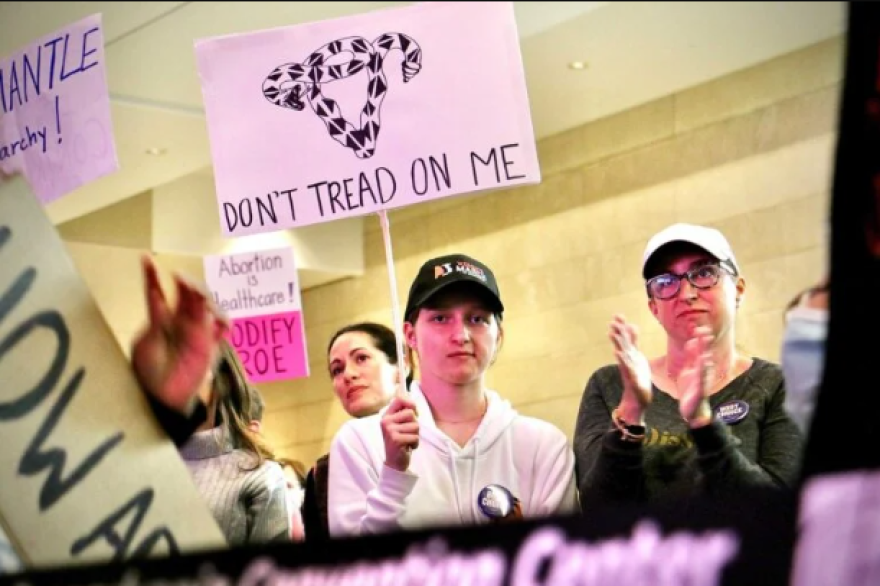
The future of abortion rights in Pennsylvania may hinge on the outcomes of the upcoming elections, which could either solidify current legal protections or facilitate significant restrictions. Following the United States Supreme Court’s decision to overturn Roe v. Wade, the authority to regulate abortion was returned to the states. Since that ruling, 19 states have enacted bans or restrictions on abortion prior to the viability standard previously established by Roe. In contrast, Pennsylvania maintains a legal framework allowing abortion up to 24 weeks of pregnancy, with provisions for cases where the mother’s life is at risk.
As the state approaches elections in November 2026, anti-abortion activists are mobilizing to potentially alter the status quo. The Pennsylvania Constitution currently lacks explicit language regarding abortion rights, although the Pennsylvania Supreme Court has indicated that its Equal Rights Amendment upholds the right to abortion based on principles of equal protection and privacy. Some justices advocate for a fundamental right to abortion, yet no formal declaration has been made.
One legislative avenue for restricting abortion in Pennsylvania would involve amending the state constitution. This process would necessitate a two-thirds majority vote in both legislative chambers across two consecutive sessions, followed by a referendum. Rep. Donna Oberlander previously attempted to introduce such an amendment in the 2021-2022 session, aiming to clarify that there is no right to abortion or public funding for it. According to John Kincaid, a professor of government at Lafayette College, such an amendment faces substantial hurdles.
In the meantime, the state legislature could still pursue bills that impose significant restrictions on abortion. Recent proposals include prohibiting abortions once a fetal heartbeat is detected and banning the procedure in cases where a fetus is diagnosed with Down syndrome. Rep. Stephanie Borowicz introduced one such bill that mirrors legislation in states like Georgia and Florida. Currently, a divided legislature minimizes the likelihood of such measures passing; however, election outcomes could change that dynamic.
With the entire Pennsylvania House of Representatives and half of the state Senate up for election, the potential for shifts in power is significant. Republicans currently hold a slim lead in the state Senate, and they are just one seat shy of a majority in the House. Should they gain control of both chambers while retaining the Senate, they would be in a position to enact restrictive abortion laws. Nevertheless, any bill would need a two-thirds majority in both chambers to override a gubernatorial veto, making control of the executive branch equally important.
Democrat Josh Shapiro, the current governor, is a staunch supporter of abortion rights. Shapiro has publicly committed to protecting access to abortion in Pennsylvania, a stance endorsed by Dr. Karen Feisullin, an obstetrician and gynecologist at Jefferson Health. The gubernatorial race has already begun, with Republicans rallying around state treasurer Stacy Garrity, who has previously taken an anti-abortion stance. Despite removing anti-abortion merchandise from her campaign website, Garrity’s affiliations and past statements have raised concerns among pro-choice advocates.
Legal challenges may arise regardless of legislative action. The Pennsylvania Supreme Court currently holds a 5-2 Democratic majority, having previously ruled in favor of abortion rights in the case of Allegheny Reproductive Health v. Pennsylvania Department of Human Services. In that case, the court determined that a state ban on Medicaid funding for most abortions likely violates the state constitution’s Equal Rights Amendment. Legal experts suggest that any attempts to impose stricter abortion regulations would face rigorous scrutiny based on this precedent.
In the context of the upcoming elections, the potential removal of justices who support abortion rights could significantly impact the judiciary’s stance on the issue. Three justices, including Justice Christine Donahue, are up for retention votes in the upcoming elections. Historically, only one justice has ever lost such a vote in Pennsylvania, making the task of unseating them formidable. However, the current political climate is unprecedented, with substantial financial and strategic resources being directed toward the elections from both parties.
Democrats are actively campaigning to protect the majority on the Supreme Court, while the Democratic National Committee has invested heavily in efforts to secure retention for the justices. Recent polling indicates that voters favor the justices, with a Franklin and Marshall College poll showing leads of between 10 and 17 percentage points among likely voters.
As for the legislative assembly, control remains tenuous. The Pennsylvania House of Representatives is narrowly divided, with Democrats holding 102 seats to Republicans’ 101. Several competitive races could shift the balance of power towards Republicans. In contrast, Governor Shapiro enjoys a solid approval rating of 60%, although recent polling indicates that Stacy Garrity remains a formidable candidate.
As the political landscape evolves, it remains clear that the future of abortion rights in Pennsylvania is intricately tied to the outcomes of these elections. Both parties are gearing up for a contentious fight, with the implications of these races potentially resonating far beyond state lines.






